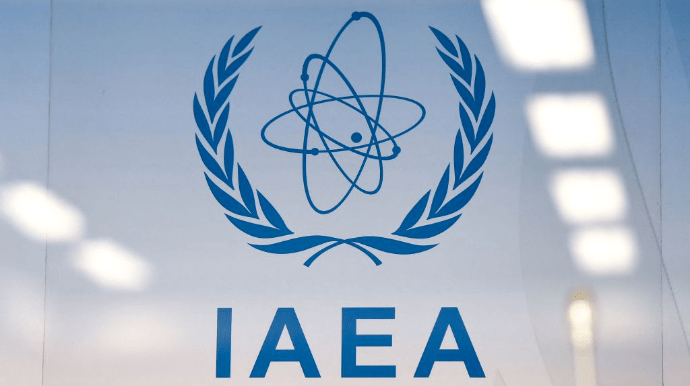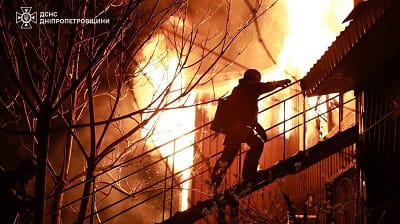Water level in Kakhovka reservoir drops by 5-7 cm every hour – IAEA

The rate the water level is falling in the Kakhovka reservoir has decreased from 11 cm to 5-7 cm per hour. If the water level in the reservoir drops below 12.7 metres, the Zaporizhzhia Nuclear Power Plant (ZNPP) will not be able to pump water from it.
Source: Press service for the International Atomic Energy Agency (IAEA); Sky News
Details: According to the IAEA, the hourly rate of loss of the Kakhovka reservoir has slowed to 5-7 cm from a peak of about 11 cm per hour recorded on 6 June.
It is noted that as of 18:00 on 7 June, the water level in the reservoir has dropped by about 2.8 metres, reaching 14.03 metres.
Quote from the IAEA: "If the level falls below 12.7 metres, the ZNPP will no longer be able to pump water from the reservoir to the site. As the full extent of the dam’s damage remains unknown, it is not possible to predict if and when this might happen. If the current drop rate were to continue, however, the 12.7 metre level could be reached within the next two days."
More details: In preparation for such a scenario, the IAEA has stressed that ZNPP is constantly replenishing its water storages (there is a large cooling pond near the plant, sprinkler cooling ponds and adjacent canals) from the Kakhovka Reservoir.
The IAEA has highlighted that if these facilities were filled with water, it would be enough to cool the ZNPP's six reactors and spent fuel for several months.
At the same time, according to Sky News, IAEA Director General Rafael Grossi said that there is a risk that the ZNPP may be left without the necessary amount of water to cool the six reactors, which is supplied from the Kakhovka reservoir and ponds.
Grossi stressed that "in the worst case scenario, without cooling you would be risking a nuclear meltdown in there with tragic ecological consequences".
Quote from Grossi: "Certainly there is a danger, perhaps in a few weeks or a month, but something needs to be done. We don't want to create panic here but it is a serious situation because normally you would need to have a guaranteed amount of water circulated in those reactors. If you start losing this ability then you're going to have a problem. The problem may be pushed down the line a few days or weeks, but the problem is going to be there."
More details: Grossi has stated that he is going to visit the ZNPP next week to assess the situation.
Journalists fight on their own frontline. Support Ukrainska Pravda or become our patron!





